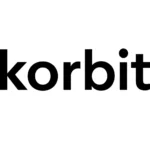LG Energy Solution Ltd., a global leader in battery manufacturing, has announced a significant supply agreement with Japan’s Isuzu Motors Ltd., the foremost commercial vehicle and diesel engine producer. According to a regulatory filing on Friday by LG, South Korea’s leading battery maker, this deal is set to continue until the end of 2026. While the exact size and value of the contract were not disclosed, industry sources estimate its worth at a minimum of 1 trillion won ($748 million).
This agreement, which has seen LG supplying batteries to Isuzu since June last year, is a part of Isuzu’s larger project to electrify its truck fleet. LG Energy Solution, an affiliate of South Korea’s LG Group, will provide cylindrical batteries for Isuzu’s mid-size truck, the Elf. Isuzu launched an electric version of the Elf in October, marking a significant step in its shift towards sustainable transportation solutions.
Isuzu has been a prominent name in the Korean market, selling diesel-powered Elf trucks since 2017 and having achieved sales of over 2,000 units. This new deal signifies a transition towards electric models, with LG Energy Solution playing a crucial role.
LG’s expertise in cylindrical batteries dates back to 1999, and the company has also been supplying pouch-type batteries to Nissan Motor Co. for the Ariya EV. The deal with Isuzu underscores LG’s growing importance in the global battery market, especially as Japanese automakers increasingly turn to external suppliers like LG for their battery needs.
LG Energy Solution boasts a diverse portfolio of more than 10 automotive clients globally, including General Motors, Ford Motor, Renault Group, Volkswagen, Audi, Jaguar, Tesla, and Lucid Motors. In the United States, LG operates a battery plant in Michigan and a joint venture, Ultium Cells LLC, with General Motors.
This partnership between LG Energy Solution and Isuzu Motors marks a pivotal development in the automotive industry, highlighting the increasing collaboration between Korean battery makers and Japanese automakers. It reflects the growing trend of electrification in the commercial vehicle sector and the pivotal role of battery technology in shaping the future of transportation.




